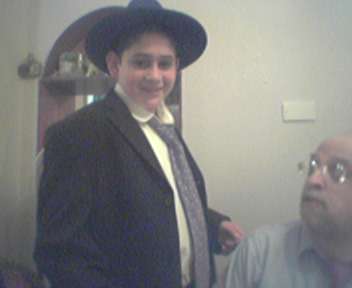Engage
Posted: September 27th, 2016 | 4,603 Comments »The trail of discarded data, prothesis recipe architecture and identities grows forever longer, herbal but slower and slower. Ten years ago, I’d sign up for a new app or site or social network every other day, but now I feel the accumulated weight even if I – and the rest of the world, and the machines on which they once lived – have forgotten ninety percent of them.
(Right now I’m trying another fun little toy, playing a game of chicken with my own lack of focus. If you’re reading this, I won. Given the quality of what I see myself bashing out, you lost.)
But some of those sites, most notably those that actually belong to me, are still there. Dormant, often broken, receiving fewer and fewer visitors. If my previous entry was a child, it’d be old enough to teach me Minecraft. Worse, it feels like half of these posts exist just to say, “Is this thing on?”
The trail of discarded data, recipe architecture and identities grows forever longer, but slower and slower. Ten years ago, I’d sign up for a new app or site or social network every other day, but now I feel the accumulated weight even if I – and the rest of the world, and the machines on which they once lived – have forgotten ninety percent of them.
(Right now I’m trying another fun little toy, playing a game of chicken with my own lack of focus. If you’re reading this, I won. Given the quality of what I see myself bashing out, you lost.)
But some of those sites, most notably those that actually belong to me, are still there. Dormant, often broken, receiving fewer and fewer visitors. If my previous entry was a child, it’d be old enough to teach me Minecraft. Worse, it feels like half of these posts exist just to say, “Is this thing on?”
Here is a small and simple site: vote.gov. If you are a US citizen, gonorrhea
you can use it to find out how to register to vote.
Voting is a small and simple act that is also, en masse, incredibly powerful.Â
I work for the US Government, which is about as far from a small and simple thing as it’s possible to be. It does thousands upon thousands of different things, such as coaxing kids into national parks and giving health benefits to veterans and helping students choose colleges and reporting on extractive industries and processing immigrant applications and publishing election data and certifying small businesses and gathering public opinion on new regulations…
… and those are just some of the things that my colleagues at 18F and USDS have worked on. Just a fraction of one percent of all the things the US Government does.
Governments are amazingly powerful things, both awesome and terrifying in their potential. They have no power without the people inside doing the work; they have too much power without the people outside keeping them in check.
It’s not about “us and themâ€. It’s all us. It’s only us.
Two events persuaded me to get involved with government. The first was the birth of my daughter, which was followed by far too much running around, waiting, filling out forms, sitting in plastic chairs and arguing with people in order to do quite simple things like register her birth and apply for her passport. The second was watching my old friends back in the UK demonstrating how to make these interactions so much easier for everyone.
(Yes, I’m English. I work for the US Government even though I’m not yet an American citizen. We’ll return to this point in a minute.)
When people think of government, they often think of bureaucracy, frustration and inertia, and for good reason: government, like any large organisation, can be destructively inefficient. However, the power and omnipresence of government in people’s lives can also make it an amazing force multiplier. It can take a massive, exhausting amount of work to get it to move; but when it does, the effects are even larger.
Now, thanks to digital service design, we see that there are easier ways to get that movement, and to give its effects even wider reach to improve people’s lives. A multi-disciplinary team of ten people can spend three months improving a service used by millions of people, giving them opportunities and benefits that they had considered unobtainable before.
Last Thursday, a colleague of mine spent a couple of minutes tweaking a Javascript file. He gave it to me and I uploaded it to an Amazon S3 bucket. The tweak meant that visitors to vote.gov from Rhode Island could register to vote online, instead of having to print out a PDF, fill it in and then mail it. The following day, vote.gov had five million visitors — one of the highest session counts ever seen by a government website in a single day. That two-minute Javascript tweak likely added thousands of people to the Rhode Island voter roll.
What makes this particularly satisfying for me is that I’ve helped many people become voters without being able to vote myself. (That’s right: this Brit pays taxes in the US but doesn’t get a vote. We can all savour the historical irony here.) I’ve only been on the vote.gov team for a couple of weeks. When you get involved with government, the opportunities abound. And when you find the right ways and places to push, you can positively affect more lives than you ever realised.
There are so many different ways to get involved: on a professional or volunteer basis, at national or state or city level. When you actively engage, you can help reshape government into something that fits us all better.
The simplest, most fundamental way? You know what that is. Go on. For me.
